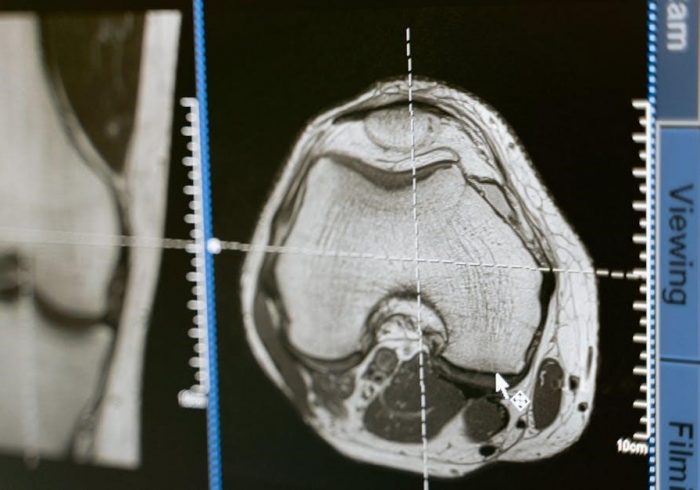Black inventors have profoundly shaped modern society, creating groundbreaking innovations despite systemic barriers. Their contributions highlight resilience, creativity, and the importance of diversity in driving technological advancement and cultural progress.
Overview of the Contributions of Black Inventors
Black inventors have made transformative contributions across various fields, from agriculture to telecommunications. Their innovations, such as the peanut revolution, gas masks, and home security systems, have revolutionized industries and improved daily life. Inventors like George Washington Carver, Garrett Morgan, and Marie Van Brittan Brown exemplify the ingenuity and resilience of Black creators. Their work not only addressed practical challenges but also laid the foundation for modern advancements. Despite historical obstacles, Black inventors have consistently demonstrated creativity and resourcefulness, leaving an indelible mark on technology, science, and culture. Their contributions underscore the importance of inclusivity and diversity in driving innovation and societal progress.

Why Black Inventors’ Contributions Matter
Black inventors’ contributions are vital to understanding the full scope of human ingenuity and innovation. Their work has reshaped industries, improved quality of life, and paved the way for future advancements. Despite facing systemic barriers and lack of recognition, Black inventors demonstrated extraordinary resilience and creativity. Their inventions, from agricultural breakthroughs to life-saving devices, highlight the importance of diversity in driving progress. By celebrating their achievements, we honor their legacy and inspire future generations to pursue careers in science and technology. Their contributions remind us that innovation knows no bounds and that inclusivity is essential for a thriving society. Recognizing Black inventors’ impact fosters a more equitable understanding of history and encourages continued innovation for the betterment of humanity.

Key Inventions by Black People That Changed the World
Black inventors created transformative innovations that revolutionized industries and daily life, driving progress and improving lives globally, proving their invaluable impact on human advancement.

George Washington Carver and the Peanut Revolution
George Washington Carver, a trailblazing Black inventor, revolutionized agriculture with his groundbreaking work on peanuts. He discovered over 300 uses for peanuts, transforming them into everyday products like soap, paint, and flour. His innovative techniques promoted crop rotation, reducing soil depletion and empowering Southern farmers. Carver’s research at the Tuskegee Institute helped farmers diversify beyond cotton, fostering economic stability. His contributions not only transformed agriculture but also inspired sustainable farming practices. Despite facing racial barriers, Carver’s creativity and dedication left a lasting legacy, proving the power of innovation to address societal challenges and improve lives globally. His work remains a testament to the ingenuity of Black inventors in shaping modern society.
Garrett Morgan and the Invention of the Gas Mask
Garrett Morgan, a visionary Black inventor, revolutionized safety with his improved gas mask. In 1914, he patented a device that filtered smoke and toxic fumes, saving countless lives. Morgan’s invention gained prominence during World War I, where it protected soldiers from chemicals. Initially met with skepticism due to racial bias, the gas mask proved indispensable, earning widespread recognition. Morgan’s creativity and perseverance in the face of discrimination highlight the resilience of Black inventors. His contributions extended beyond safety, inspiring future innovations in public health and emergency response. Morgan’s legacy underscores the transformative impact of Black inventors on global safety standards and their ability to overcome adversity to achieve greatness. His work remains a cornerstone of modern safety technology, celebrating his enduring influence on humanity.
Marie Van Brittan Brown and Home Security Systems
Marie Van Brittan Brown, a Black inventor, revolutionized home security by creating the first modern home security system. Motivated by concerns for personal safety and her husband’s late working hours, Brown designed a system with cameras, remote monitoring, and emergency alerts. Her 1969 patent laid the foundation for contemporary security technologies. Brown’s invention was groundbreaking, addressing societal needs and paving the way for advanced surveillance systems. Despite facing racial and gender biases, her innovation remains a testament to her ingenuity and determination. Brown’s work not only enhanced personal safety but also inspired future advancements in security technology, leaving a lasting legacy in the field. Her contributions highlight the transformative impact of Black inventors on everyday life and their ability to overcome barriers to innovation.

The Challenges Faced by Black Inventors
Black inventors encountered systemic racism, limited resources, and societal biases, often denying them recognition and opportunities to patent their innovations, despite their groundbreaking contributions to society.
Historical Obstacles and Lack of Recognition
Black inventors faced immense historical obstacles, including slavery, racism, and systemic exclusion from educational and economic opportunities. Enslaved individuals were often denied patent rights, as they were legally considered property. Even after emancipation, Black inventors struggled for recognition, with their contributions frequently appropriated or overlooked. Many faced discrimination in accessing resources, funding, and legal protections for their innovations. The lack of representation in historical records further obscured their achievements, perpetuating a narrative that marginalized their contributions to science and technology. Despite these challenges, their resilience and creativity paved the way for future generations, highlighting the need to acknowledge and celebrate their often-erased legacy in shaping modern society.
The Fight for Patent Rights

Black inventors historically faced significant challenges in securing patent rights for their innovations. During slavery, enslaved individuals were legally barred from owning patents, as they were considered property. Even after emancipation, systemic racism and discrimination hindered Black inventors’ access to legal protections for their work. Many faced exploitation, with their inventions being claimed by others. Despite these barriers, some Black inventors, such as Thomas Jennings and Norbert Rillieux, successfully obtained patents, paving the way for others. The fight for patent rights was not only a struggle for legal recognition but also a battle for equality and acknowledgment of their contributions to science and technology. These pioneers’ determination highlighted the importance of equitable access to intellectual property rights, ensuring their innovations could benefit society and leave a lasting legacy.

A List of Notable Black Inventors and Their Inventions
Notable Black inventors include: George Washington Carver (peanut innovations), Garrett Morgan (gas mask), Marie Van Brittan Brown (home security systems), Granville Woods (electric inventions), and Elijah McCoy (lubricating cup). Their groundbreaking work transformed industries and daily life.

Granville Woods and His Contributions to Electricity

Granville Woods, a prolific inventor, revolutionized the field of electricity with his groundbreaking innovations. Known as the “Black Edison,” he held over 60 patents, including the electric lamp, electric railway system, and elevator. Woods’ inventions transformed urban transportation and industrial processes, laying the foundation for modern electrical infrastructure. His work on the overhead wire for electric railways enabled efficient public transit, while his electric lamp improved lighting systems. Despite facing racial bias and challenges in securing patents, Woods’ contributions remain pivotal in shaping technological advancements. His legacy underscores the importance of inclusivity in innovation and highlights the enduring impact of Black inventors on global progress and development.
Elijah McCoy and the Lubricating Cup
Elijah McCoy, a renowned Black inventor, revolutionized industry with his innovative lubricating cup. Invented in 1872, this device automatically fed oil to machine bearings, eliminating the need for manual lubrication. McCoy’s invention significantly improved the efficiency of steam engines and locomotives, reducing downtime and increasing productivity. His design became indispensable in railroads and manufacturing, earning him widespread recognition. Despite facing racial discrimination and challenges in patenting his work, McCoy persisted, securing over 50 patents throughout his career. His lubricating cup not only transformed industrial operations but also exemplified the ingenuity and resilience of Black inventors in overcoming systemic barriers. McCoy’s contributions remain a testament to the profound impact of African-American innovation on global technological advancement and industrial progress.
Shirley Ann Jackson and Telecommunications
Shirley Ann Jackson, a trailblazing African-American physicist, has made seminal contributions to telecommunications. Her pioneering research laid the groundwork for technologies such as the portable fax machine, caller ID, and fiber-optic cables. Jackson’s work in theoretical physics addressed challenges in signal transmission, paving the way for modern communication systems. Her innovations have enabled faster and more reliable data transfer, revolutionizing how the world connects. Despite facing gender and racial barriers, Jackson’s determination and intellect have left an indelible mark on the field. Her achievements underscore the vital role of diversity in driving technological advancements and highlight the transformative impact of Black inventors on contemporary society. Jackson’s legacy continues to inspire future generations of scientists and engineers, ensuring her contributions remain integral to the evolution of telecommunications.
Black inventors have left an indelible mark on history, shaping modern life through groundbreaking innovations. Their resilience and creativity continue to inspire future generations, ensuring their legacy endures.
How Black Inventors Shaped Modern Society
Black inventors have profoundly influenced modern society by pioneering innovations that transformed industries and daily life. From George Washington Carver’s peanut revolution to Garrett Morgan’s gas mask, their creations addressed critical needs. Marie Van Brittan Brown’s home security system and Granville Woods’ contributions to electricity laid foundations for modern technology. These inventors’ work not only advanced science but also challenged racial barriers, proving intellect and creativity transcend discrimination. Their resilience in the face of historical obstacles inspires future generations, emphasizing the importance of diversity in innovation. By shaping industries like agriculture, safety, and telecommunications, Black inventors have left an indelible mark on global progress, proving their contributions are essential to humanity’s advancement.



